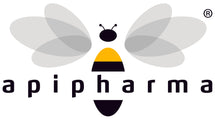In the vast realm of natural remedies, propolis stands as a golden elixir, a gift from the industrious bees that has been cherished for centuries. This resinous substance, often referred to as "bee glue," is a complex mixture produced by honeybees using resins gathered from various trees and plants. As we delve into the rich history, perceived benefits, the lack of conclusive evidence in the United States, and the cautionary notes for those allergic to bee products, it becomes clear that propolis is a captivating enigma that continues to captivate the imagination of health enthusiasts worldwide.
A Historical Tapestry
The story of propolis is woven into the fabric of ancient civilizations. Dating back to the time of the ancient Egyptians, propolis was used in embalming practices, highlighting its preservation qualities. The Greeks, too, recognized its medicinal properties, employing it for a myriad of health concerns. The term "propolis" itself is derived from the Greek words "pro," meaning before, and "polis," meaning city, alluding to the substance's use in sealing and protecting the beehive.
In traditional Chinese medicine, propolis was revered for its ability to balance the body's energy and promote overall well-being. Throughout history, various cultures have celebrated propolis as a natural remedy with diverse applications, from wound healing to immune support.
Perceived Benefits: Nature's Pharmacy
The allure of propolis lies in its diverse array of potential health benefits. Rich in bioactive compounds, including flavonoids, phenolics, and essential oils, propolis possesses antimicrobial, anti-inflammatory, and antioxidant properties. These characteristics have led to its inclusion in numerous natural health products and supplements.
-
Immune Support: One of the most celebrated aspects of propolis is its potential to bolster the immune system. Studies suggest that its antimicrobial properties may help ward off infections and support the body's natural defenses.
-
Wound Healing: With its ability to promote tissue repair, propolis has been explored for its wound-healing properties. Some cultures have used it topically to aid in the recovery of skin injuries and burns.
-
Anti-Inflammatory Action: Inflammation is at the root of many health issues. Propolis's anti-inflammatory properties are believed to contribute to its potential benefits in conditions ranging from arthritis to respiratory ailments.
-
Dental Health: Propolis has found its way into oral care products due to its antimicrobial properties. Some studies suggest that it may help combat bacteria in the mouth, contributing to improved oral health.
The Lack of Concrete Proof in the US
While propolis has a storied history and an array of potential benefits, it's essential to navigate the landscape with a discerning eye. In the United States, the scientific community has shown a cautious approach toward making definitive claims about propolis's efficacy. While preliminary studies and anecdotal evidence are promising, more rigorous research is needed to establish conclusive links between propolis and specific health outcomes.
The lack of a standardized definition and composition for propolis across different products adds a layer of complexity to scientific investigations. Varying sources and processing methods can result in different chemical compositions, making it challenging to draw broad conclusions.
This caution extends to regulatory bodies like the Food and Drug Administration (FDA), which has not approved propolis for specific health claims. As consumers, it's vital to approach propolis products with an awareness of the current state of scientific understanding and to consult healthcare professionals when considering its use.
Caution for Those Allergic to Bee Products
While propolis holds promise for many, it is not without its risks, particularly for individuals with allergies to bee products. Allergic reactions can range from mild symptoms, such as itching and swelling, to severe anaphylaxis, a life-threatening condition. Before incorporating propolis into any health regimen, individuals with known bee product allergies should exercise extreme caution and consult with their healthcare providers.
Navigating the Propolis Landscape
As interest in propolis continues to grow, navigating the landscape of products and information requires a thoughtful and informed approach. Here are some key considerations:
-
Quality Matters: The quality of propolis products can vary significantly. Look for reputable brands that prioritize transparency in their sourcing and production processes.
-
Consultation is Key: Before adding propolis supplements to your routine, consult with a healthcare professional. They can provide personalized advice based on your health history and potential interactions with other medications.
-
Be Allergy-Aware: If you have a known allergy to bee products, exercise caution and consider alternative options for natural health support.
-
Stay Informed: Keep abreast of ongoing research and developments in the field of propolis. As our understanding deepens, so too will our ability to harness its potential benefits.
In conclusion, propolis stands as a testament to the intricate relationship between nature and human health. Its rich history, perceived benefits, and ongoing scientific exploration make it a subject of fascination and promise. As we tread the path of natural remedies, let us approach propolis with curiosity, respect for its complexity, and a commitment to understanding its role in our collective well-being.
Apipharma - Inspiring Good Health and Happiness Since 1974


